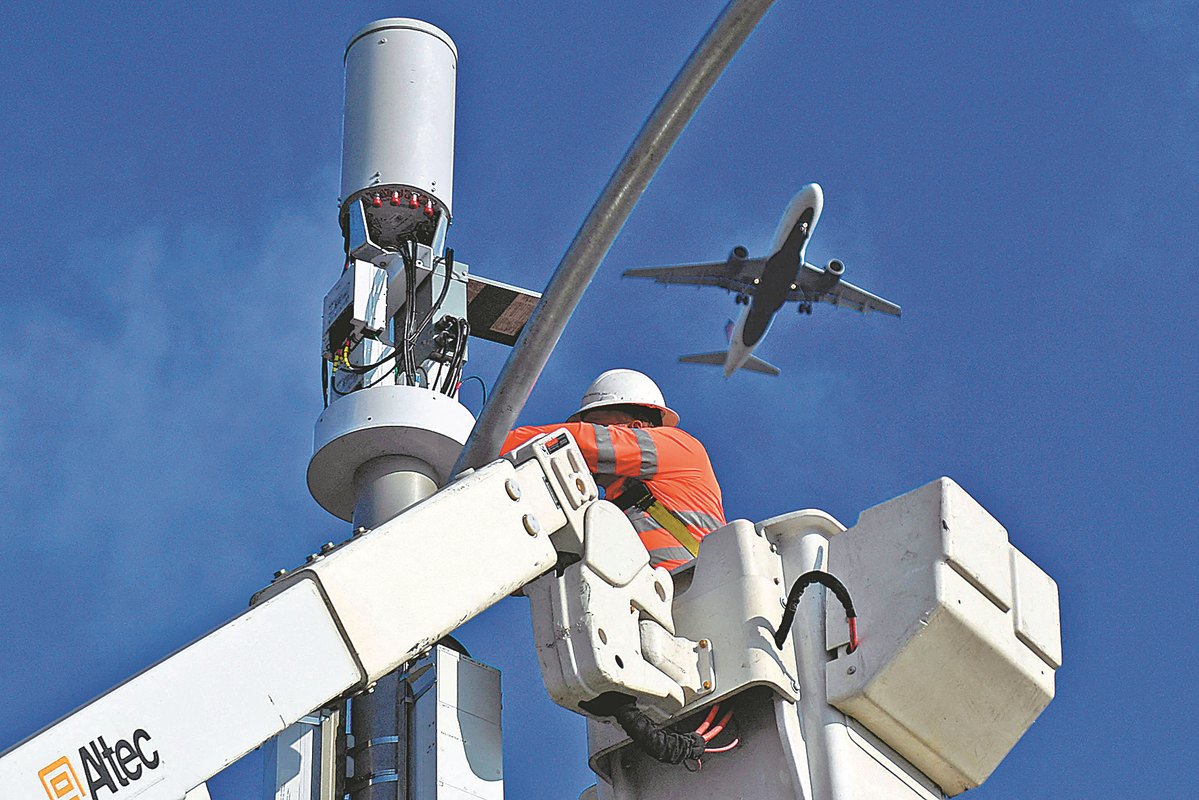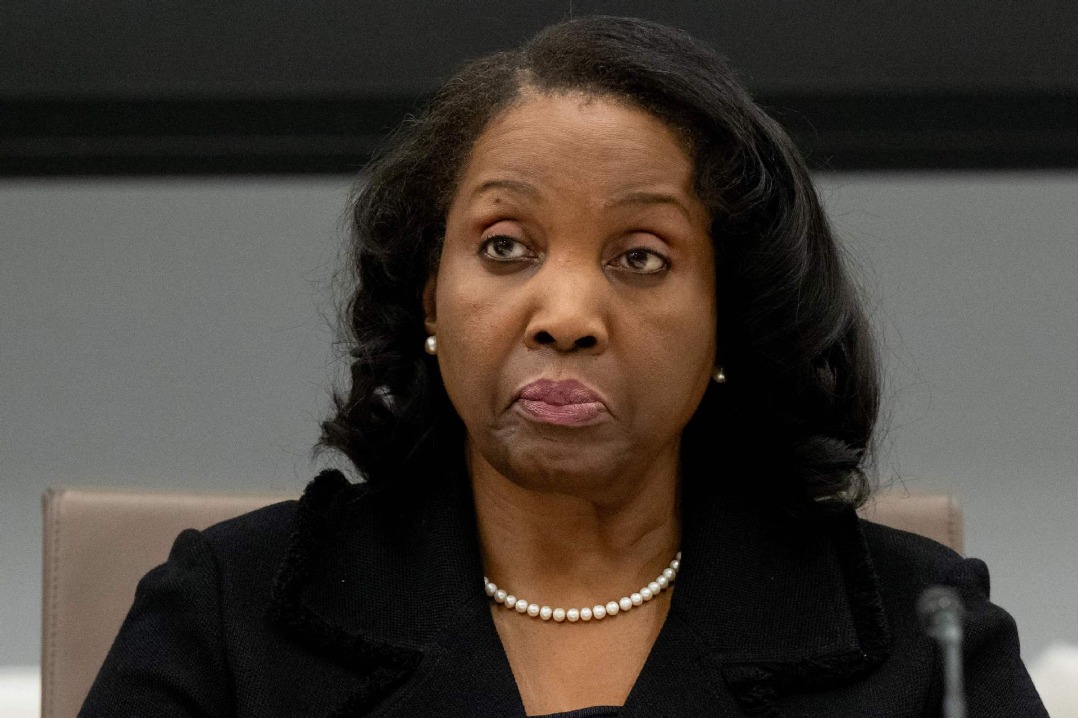Poor coordination blamed for 5G chaos


The recent disrupted launch of 5G wireless C-band services around the United States resulted in the cancellations of many airline flights, highlighting a disconnect between the government and big businesses about how to manage the implementation of the new standard.
"We have, in this case, two very different industries (airlines and telecommunications) that have different ways of looking at risk, and I think over the last couple of months, we understand each other much better than we did before," Federal Aviation Administration Administrator Steve Dickson was reported by The Wall Street Journal as saying on Jan 19.
But some experts say poor coordination and cooperation among federal agencies is as much to blame as any technical issues.
"The fights around this from federal agencies have just gotten more and more intense," said Harold Feld, an expert on telecommunications policy at the advocacy group Public Knowledge.
Dickson faced some pointed questioning from Congress on Thursday over the flight disruptions, during a House of Representatives Transportation and Infrastructure subcommittee hearing. Representative Garret Graves, the panel's top Republican member, said the FAA and Federal Communications Commission, or FCC, played "chicken with one another-or whatever ridiculousness happened-and now we ended up threatening aviation safety".
In response, Dickson said the process "did not serve anyone well".
House Transportation and Infrastructure Committee Chairman Peter DeFazio, a Democrat, told the hearing that aviation safety must be prioritized.
"Having a dropped call is way less serious than having a dropped airplane out of the sky," he said.
FCC Chairwoman Jessica Rosenworcel said earlier that the deployment of fifth-generation mobile services "can safely coexist with aviation technologies in the United States, just as it does in other countries around the world."
However, she urged the FAA to conduct its safety checks with "both care and speed".
Tim Clark, president of the Gulf-based airline Emirates, told CNN the 5G-air traffic situation was "one of the most delinquent, utterly irresponsible" situations he had seen.
The FAA had warned that potential 5G interference could affect altitude readings on some jets, with airlines citing the Boeing 777 among the models generating concern. Emirates, which relies heavily on the 777, halted flights to several US cities on Jan 19.
The FAA gave approval on Jan 19 for more types of planes to land in low visibility near 5G signals, including the Boeing 777. By evening that day, however, nearly 40 percent of the US airline fleet was still waiting to be cleared.
Flights canceled
Telecom giants AT&T and Verizon paused the 5G rollout near airports, but several airlines still canceled flights or switched aircraft models on Jan 19.
In early 2021, the US auctioned midrange 5G bandwidth to AT&T and Verizon-in the 3.7-3.98 gigahertz range on the spectrum known as C band-for about $80 billion. The higher the frequency in the spectrum, the faster the service.
The FAA has warned that 5G could interfere with instruments such as altimeters, which measure how far above ground an airplane is traveling. Altimeters operate in the 4.2-4.4 GHz range, and the concern is that the auctioned frequencies sit too close to that range.
Verizon has said it will not use spectrum that is closer to the higher band for several years.
United Airlines CEO Scott Kirby said in December that the FAA's 5G directives would bar the use of radio altimeters at about 40 of the biggest US airports.
The European Union in 2019 set standards for midrange 5G frequencies in a 3.4-3.8 GHz range. The bandwidth is in use in many of the bloc's 27 member states.
The Center for Strategic & International Studies' Working Group on Trust and Security in 5G Networks wrote in March 2021 that "contrary to some initial commentary, the United States is doing well in 5G when measured by production of crucial 5G technologies", among other aspects.
The Civil Aviation Administration of China said on Jan 21 that its planned 5G infrastructure for the country's airports will not affect air traffic because it uses aviation-specific frequencies that operate separately from public 5G networks, the South China Morning Post reported. China's four state-owned carriers use C-band frequencies from 2.6 to 4.9 GHz.
The Associated Press and Reuters contributed to this story.

































